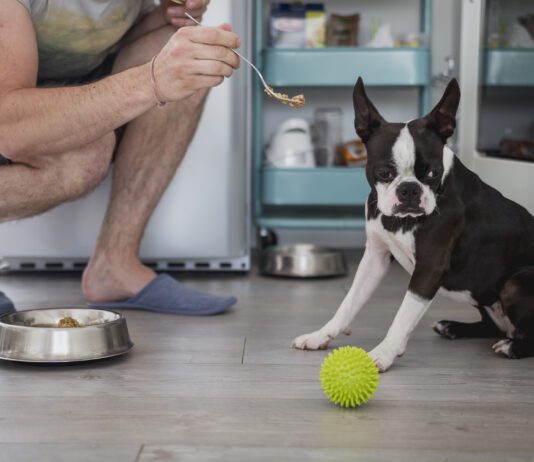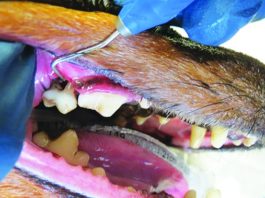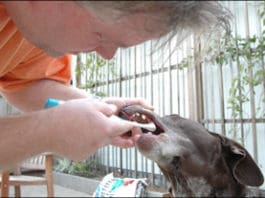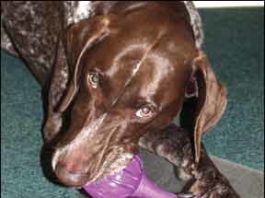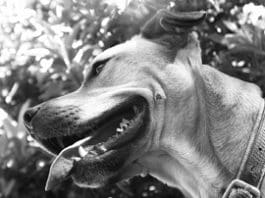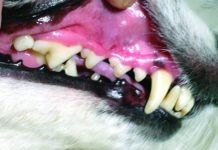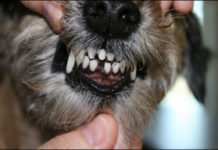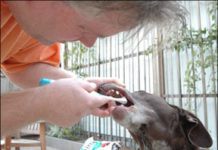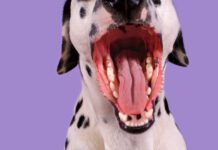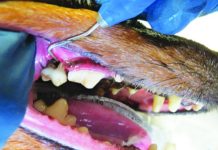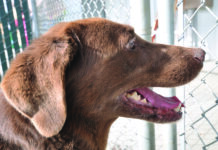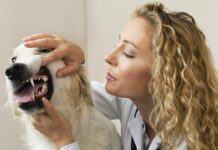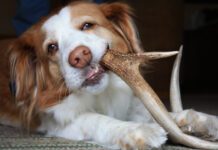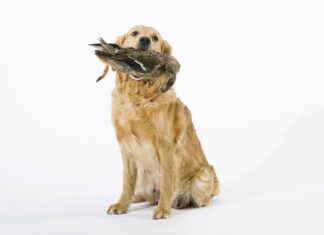Save Your Dog’s Teeth with Home Care
Cooper, my service-dog-in-training, trotted briskly at the side of my power wheelchair as we headed to the veterinary clinic, a mile from home. He was overdue for a routine dental cleaning, and my regular veterinary clinic was not within rolling distance. I decided to take a chance on a new vet, since it was just a standard dental cleaning. I dropped him off and rolled back home, relieved that I was finally able to afford the procedure.
Fractured Teeth in Dogs
Between runs at a recent agility competition, I was chatting with Katie and Nora, a couple of handlers I often see at trials. Coincidentally, all three of our dogs had received an annual health examination from our respective general practice veterinarians recently, with all dogs earning good reports. And all three of us had been told by our veterinarians that our dogs had broken or chipped teeth. My veterinarian had noted a slab fracture of the upper fourth premolar" on the health summary report for my 10-year-old Border Terrier
Canine Dental Care
Some dogs have sparkling white teeth (or at least, whitish teeth that are free of tartar) throughout their lifetimes, with absolutely no thought or effort required of their owners. Those are the lucky ones – the owners, I mean – because more than 80 percent of dogs develop a form of canine gum disease by the age of just three years, according to the American Veterinary Dental Society. The owners of those dogs – that is, most of us – should be brushing our dogs’ teeth regularly to prevent the accumulation of plaque and tartar that precipitates gum disease. Proponents of raw dog food diets believe that the mechanical action of chewing raw meat and bones and the superior nutrition provided by the diets help maintain healthy teeth. That may be true, but for dogs on more conventional diets, regular brushing is the most effective method of keeping a dog’s teeth free of tartar and plaque.
Chewing Improves Your Dog’s Teeth and Gum Health
Many people think of their dog's chewing as just a puppy thing" but the fact is
The 3 Most Common and Preventable Canine Maladies
What is the worst part about these strikingly common conditions dogs get? They are all entirely preventable. Obesity, periodontitis, and overgrown nails affect more dogs in the United States than any other diseases, and can be just as harmful.
Black Spot on Your Dog’s Tongue?
A black spot on a dog's tongue is usually nothing but pigmentation and is completely normal. It's only a cause for concern when these spots have an uneven texture, or are associated with foul odors and sores that you need to be concerned.
Can Dogs Get Strep Throat from a Human?
Human strep throat is usually caused by Group A Streptococcus, while dogs are more susceptible to Group G Streptococcus.
Dog Teeth Cleaning: Don’t Deny Dental Health
where the left and right sides of the mouth are mismatched. That upper canine should be right behind the bottom canine. Instead, the bottom canine is crashing into a top incisor. The rest of her top incisors are actually hitting the bottom of her mouth! This pup will need major dental work.üüOuch! This molar has suffered significant gingival (gum) recession and exposed the roots. Immediate extraction is warranted.
Healthy Dog Gums vs Unhealthy Dog Gums: The Colors to Watch Out For
Did you know that the color and condition of your dog’s gums can give you important clues about her health? Paying attention to these...
Does Your Dog Have Pale Gums?
Pale gums in dogs can be a symptom of anemia or blood loss, but there are other causes as well.
Are Antlers Safe for Dogs?
The biggest risk for dogs from chewing on antlers is broken teeth. Antlers can also splinter and damage a dogs digestive track, or block it.
Why Is My Dog Losing Weight?
Environmental issues can cause a dog to stop eating and be easily fixed. Dental or medical issues can also cause weight loss and need professional assistance to resolve.


